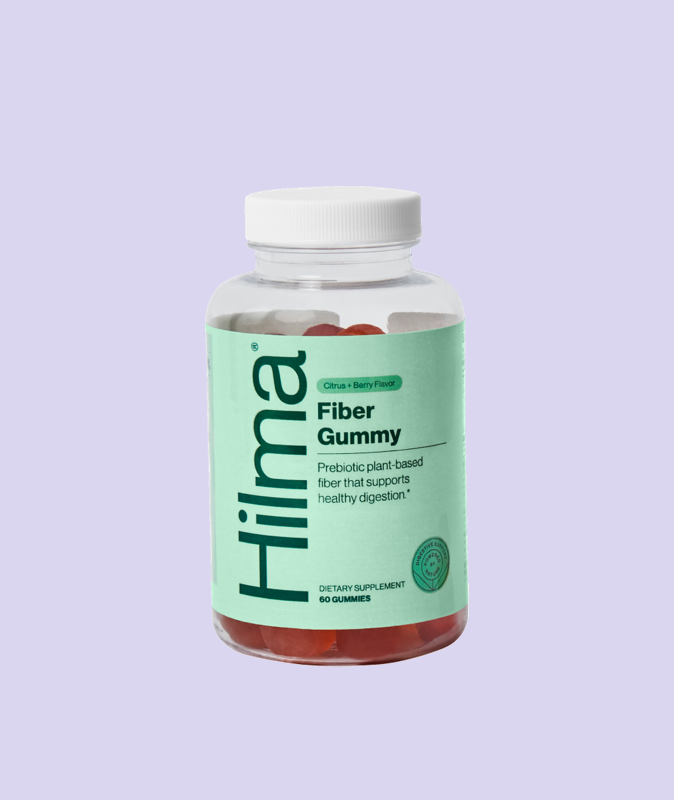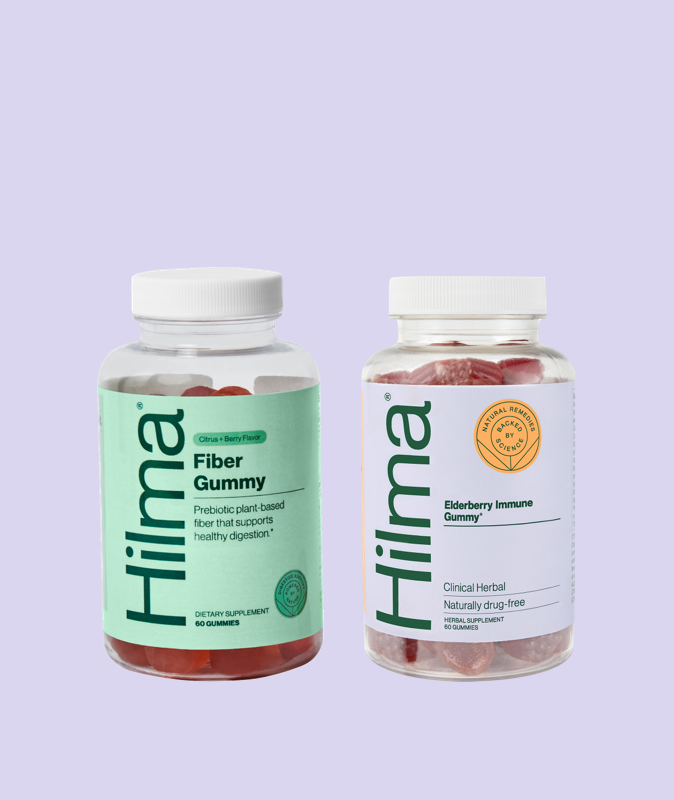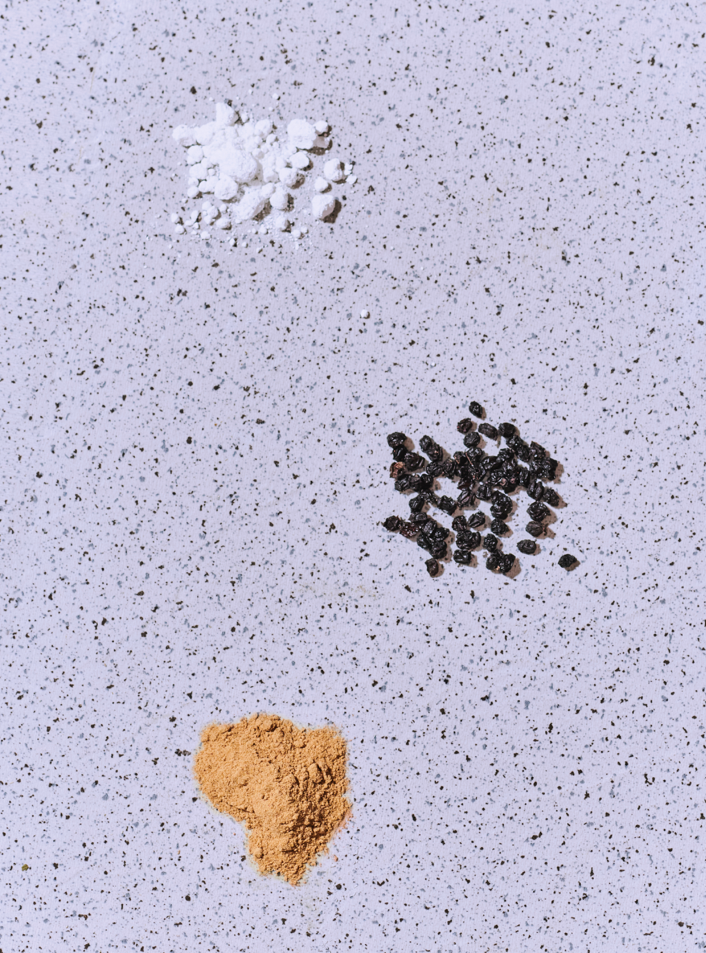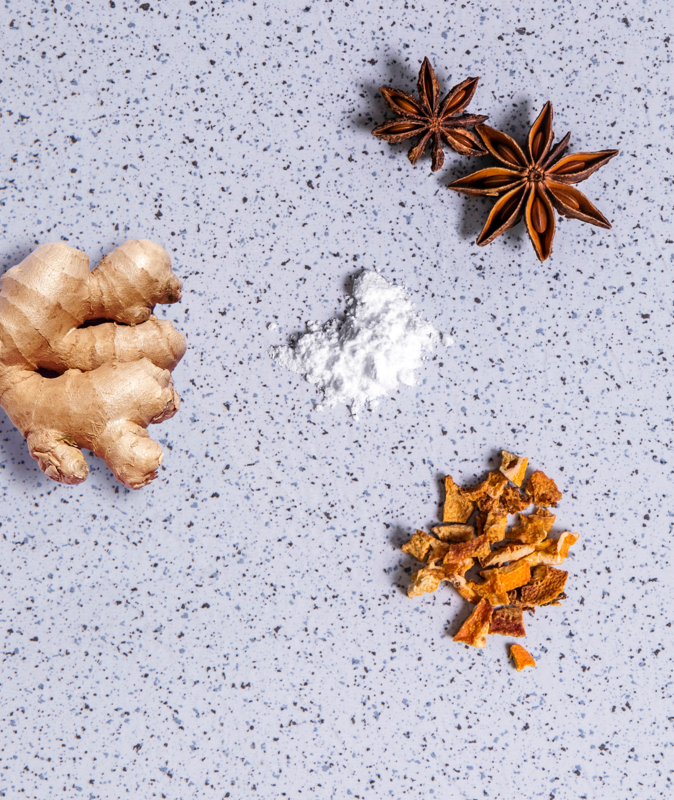
Whether you're a seasoned FSA user or new to the concept, we're here to demystify the intricacies and help you understand how you can use your FSA money to invest in your well-being, including purchasing our FSA eligible Fiber Gummy.
What is a Flexible Spending Account (FSA)?
A flexible spending account (FSA) is provided by many employers to empower their employees to take control of their health and well-being. This benefit allows you to set aside tax-free money to cover qualified health purchases, ranging from over-the-counter (OTC) products and prescriptions to vision health essentials and beyond.
Owned by your employer, FSAs are employer-sponsored, meaning participation is contingent on your employer offering this option. FSA eligible items encompass a broad spectrum, from everyday essentials like facial cleansers and sunscreen to covering copays for medical services. While the IRS determines the general eligibility of items, employers have the flexibility to narrow down the scope of what their specific FSA covers.
To make a purchase using your FSA, you can either use your FSA card directly or use your personal debit card and submit receipts to your administrator for reimbursement. Understanding your FSA is the key to maximizing its benefits.
What does “FSA eligible” mean?
In simple terms, "FSA eligible" means that a product or service is covered by your flexible spending account. It's essential to note that not all FSAs are created equal. Each plan may have its own allowances and requirements. Before embarking on a shopping spree, always check with your FSA administrator to understand the specifics of your plan.
What is FSAstore.com?
FSAstore.com is the largest online marketplace for guaranteed FSA eligible products. Their goal is to assist millions of flexible spending account holders in managing and utilizing their FSAs effectively. They offer over 4,000 health items available for purchase using tax-free health money.
How can I purchase the Hilma Fiber Gummy with my FSA Money?
Now, let's talk about our FSA eligible Fiber Gummy. Packed with 5 grams of plant-based, prebiotic fiber and only 3 grams of sugar, our Fiber Gummy is the perfect addition to your wellness routine. But how can you use your FSA money to purchase it?
Our Fiber Gummy is available on FSAstore.com. Simply add it to your cart, and if you're using an active FSA card, your purchase will be seamlessly auto-substantiated. For those using a personal debit card, keep your receipt handy to submit it to your FSA administrator for reimbursement.
What is the Hilma Fiber Gummy?
Our Fiber Gummy is a carefully crafted blend designed to support your dietary fiber intake. Here's a breakdown of the key components:
- Chicory Root Fiber: At the heart of our Fiber Gummy is chicory root fiber, a plant-based, prebiotic soluble fiber. Known for its gut-friendly properties, chicory root fiber helps nourish the beneficial bacteria in your digestive system, promoting a healthy gut environment.
- Naturally Derived Flavors: We believe in keeping things natural and healthy. Our Fiber Gummy is flavored with a combination of raw cane sugar and natural flavors but only contains 3 grams of sugar. This ensures a tasty experience without compromising on quality.
- Other Ingredients: The goodness doesn't stop there. Our Fiber Gummy also includes water, pectin, citric acid, sodium citrate, natural color (annatto and elderberry juice), coconut oil, and carnauba wax. Each ingredient is thoughtfully selected to contribute to the overall excellence of our supplement.
Now that you know what goes into our Fiber Gummy, let's explore why it proudly bears the FSA-approved label.
Why is the Hilma Fiber Gummy FSA-Approved?
The Hilma Fiber Gummy earns its FSA-approved status through a combination of factors that align with the guidelines set for flexible spending accounts. Here's why our Fiber Gummy is a smart and eligible choice for your FSA funds:
- Dietary Supplement Category: The Hilma Fiber Gummy falls under the category of dietary supplements, a common FSA-eligible expense. Many FSAs cover dietary supplements that serve a medical purpose, and our Fiber Gummy, designed to support digestive health, perfectly fits this criterion.
- Inclusion of Recognized Ingredients: The use of chicory root fiber, a well-known prebiotic soluble fiber, adds credibility to the health benefits of our Fiber Gummy. FSA administrators often look for products with recognized ingredients that contribute to overall well-being.
- Transparent Labeling: We believe in transparency, and so does the FSA. Our Fiber Gummy comes with clear and honest labeling, allowing you to understand exactly what you're putting into your body. FSA administrators appreciate this transparency, making the reimbursement process smoother.
- Health and Wellness Focus: FSAs are designed to promote health and wellness. The Hilma Fiber Gummy aligns with this goal by offering a convenient and enjoyable way to supplement your fiber intake, contributing to better digestive health.
Why is Fiber important?
Fiber acts as both food for the gut as well as the support team. You would not have a healthy microbiome without fiber! Soluble fiber helps feed the beneficial bacteria, preventing an overgrowth of any pathogenic bacteria. Insoluble fiber, through physical movement, helps aid in the elimination of toxins. An accumulation of toxins would not only feel uncomfortable in the form of constipation, but cause damage by lingering in the digestive tract.
Since it can be easier said than done to consume enough fiber every day—a standard green salad only contains ~5g—supplementation is a wonderful way to boost intake. Common sources of fiber for supplementation include psyllium husk, inulin, chia seeds, and flax seeds.
Foods that are high in fiber?
Fiber aids in digestion and nutrient absorption, helps nourish the gut microbiome, provides protection from toxins by supporting stool elimination, and is typically found in foods high in nutritious phytochemicals. Fiber is categorized as soluble or insoluble. Soluble fiber acts as food for healthy gut bacteria and insoluble fiber passes through the system as a physical movement support. Here are 5 foods that are good sources of fiber:
- Sweet potatoes - Sweet potatoes are tasty additions to a meal and a higher fiber choice than white rice or white potatoes. Sweet potatoes can be quickly sliced up and coated with a bit of avocado oil and garlic salt next to other vegetables and sausages as part of a one-pan meal.
- Avocado - Do not let the texture of an avocado fool you. Avocados are high in both insoluble and soluble fiber. Adding a bit of avocado on your toast or in your salad can add several grams of fiber.
- Flaxseeds - Flaxseeds are known for their powerful detoxifying capabilities. The seeds can be a fibrous addition to oatmeal and smoothies without messing with flavor.
- Lentils - To boost the fiber content of hamburgers or meatballs, consider replacing half of the ground meat with lentils. Lentils are an inexpensive fiber source that blend well with a mixture of spices.
- Blackberries - Berries are some of the highest fibrous fruits. Just a large handful of blackberries contains 5.3 g fiber. In comparison, a medium-banana contains 3.1 g fiber. When you are building a smoothie or oatmeal, consider adding frozen berries instead of bananas.
Ultimately, when you include a variety of whole plants on your plate, you are consuming fiber. If you select whole foods over processed foods, you are boosting your daily fiber content. Whether this selection is a handful of nuts instead of crackers, or avocado slices on toast instead of butter, you are choosing more fiber.
What happens if you don't get enough fiber?
Fiber plays a crucial role in maintaining overall health, and a deficiency in this essential nutrient can lead to various adverse effects on your body. Here are some potential consequences of not getting enough fiber in your diet:
- Digestive Issues: Insufficient fiber intake is often linked to digestive problems, including constipation. Fiber adds bulk to your stool, softening it and aiding in its movement through the digestive tract. Without enough fiber, you may experience difficulty passing stool, leading to discomfort and potential complications.
- Weight Management Challenges: High-fiber foods are often more filling, and they contribute to a sense of satiety. Without an adequate intake of fiber, you might find it challenging to control your appetite, which can potentially contribute to overeating and weight gain.
- Blood Sugar Fluctuations: Fiber helps regulate blood sugar levels by slowing down the absorption of sugar. Without enough fiber, there can be rapid spikes and crashes in blood sugar, which may contribute to insulin resistance and an increased risk of developing type 2 diabetes.
- Increased Risk of Heart Disease: Fiber is known to have heart-protective effects. A diet low in fiber may be associated with higher levels of cholesterol and an increased risk of cardiovascular diseases.
- Gut Microbiome Imbalance: Fiber serves as a prebiotic, nourishing the beneficial bacteria in your gut. Inadequate fiber intake can disrupt the balance of your gut microbiome, potentially leading to an overgrowth of harmful bacteria and an increased risk of inflammation and other gastrointestinal issues.
- Diverticular Disease: A lack of fiber has been linked to the development of diverticula, small pouches that can form in the walls of the colon. When these pouches become inflamed or infected, it can lead to a condition known as diverticulitis, causing abdominal pain, fever, and other complications.
- Increased Risk of Colorectal Cancer: A diet low in fiber has been associated with a higher risk of colorectal cancer. Fiber is thought to play a protective role by promoting regular bowel movements and reducing the time that potential carcinogens are in contact with the colon.
To avoid these potential health issues, it's essential to incorporate a variety of high-fiber foods into your diet, such as fruits, vegetables, whole grains, legumes, nuts, and seeds. If you struggle to meet your fiber needs through food alone, fiber supplements or products like Hilma's Fiber Gummy, which provide a convenient and tasty source of fiber, can be considered as part of a balanced diet.
In conclusion, as you embark on your journey to wellness, remember that your FSA is not just a financial tool but a catalyst for investing in your health. Hilma is here to support you every step of the way, offering FSA-approved products like our Fiber Gummy and providing valuable insights into the world of natural healthcare. Here's to a healthier, more informed you – empowered by knowledge, nourished by fiber, and supported by Hilma. Cheers to your well-being!





